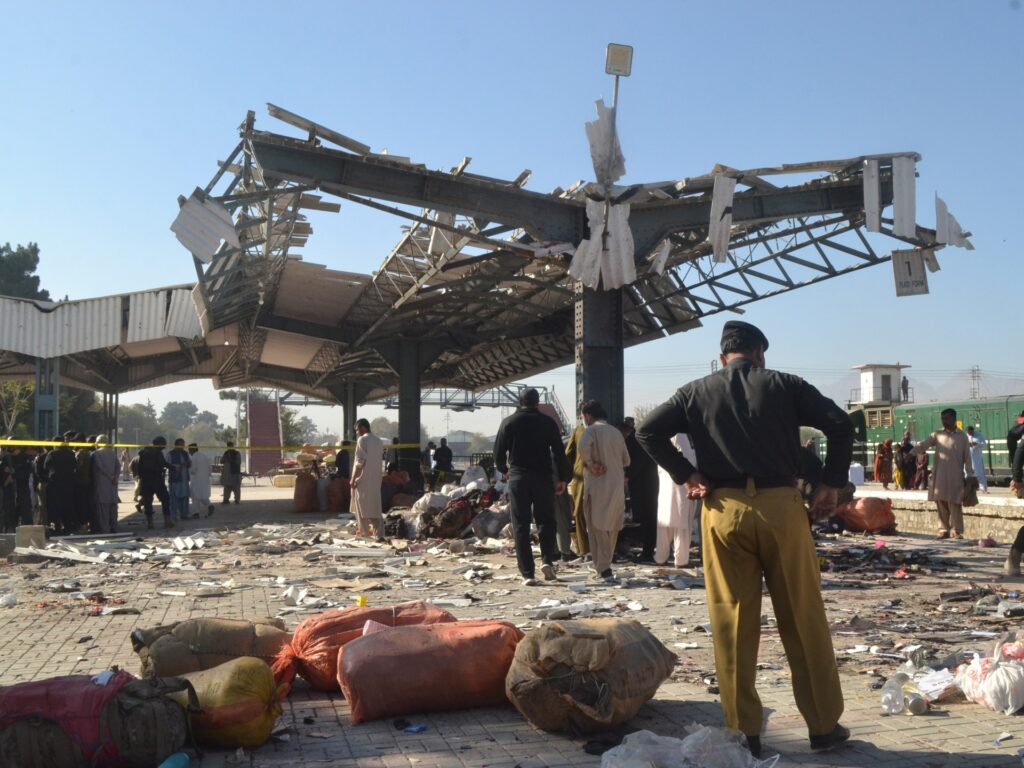A suicide bomber targeted passengers waiting to board an express train; one victim says it felt like Judgment Day.
QUETTA, Pakistan — On Saturday morning, Pakistan Railways senior ticket inspector Ikhtial Hussain arrived at Quetta station in the country’s Balochistan province at around 8:25 a.m. local time (3:25 p.m. Japan time). and was preparing to board the train to start work. .
A few seconds later, Hussein heard a powerful explosion and fell to the ground. Shrapnel from the explosion hit his right cheek, and his face began to bleed.
At least 26 people, including security personnel and civilians, were killed and dozens injured when a suicide bomber targeted passengers waiting on the Peshawar-bound Jafar Express on Saturday morning.
Hussein, 47, survived, but his face is scarred and his memories will never fade.
“It was a scene from Judgment Day, as people who were smiling at the train station fell to the ground in a bloody mess within seconds,” Hussain told Al Jazeera from Quetta Civil Hospital, where he was being treated for his wounds. I looked back.
Pakistani authorities confirmed it was a suicide bombing. Law enforcement agencies are investigating how the perpetrator was able to enter the station despite tight security at the entrance gate.
The Balochistan Liberation Army (BLA), an illegal armed separatist group, claimed responsibility for the attack.
Prime Minister Shahbaz Sharif and other political leaders condemned the attack on unarmed passengers and promised to punish the perpetrators.
But for many people who have friends or relatives in critical condition, the government also has questions to answer.
Hafiz Allah Ditta, 32, a local mason, had come to the station to see off a friend who was traveling to the southern city of Bahawalpur. “As we entered platform 1 of the train station, a powerful explosion shook the area,” Ditta recalled. His friend is currently receiving life-saving treatment at the hospital.
“Police officers were standing at the ticket counter checking passengers’ luggage, but we don’t know how the suicide bomber got into the station, so the government should strengthen security measures at the station,” Ditta said. said.

Violent attacks have increased in Pakistan’s southwestern Balochistan province, which borders Iran and Afghanistan, since January. The government and security forces continue to battle religious armed groups, including the Islamic State (ISIS), Tehreek-e-Taliban Pakistan, and Baloch separatist groups.
Last week, nine people were killed in an IED explosion that targeted a police vehicle guarding a polio vaccination team in the remote city of Mastun, about 52 kilometers (32 miles) from the capital Quetta.
Hamza Shafqat, a senior bureaucrat who heads the administrative affairs of four districts including Quetta, told reporters that security camera footage suggested the gunman entered the station disguised as a passenger before detonating himself. .
Another railway employee, Muhammad Amir Rafiq, 41, who worked at the station, said he saw smoke and dust rising from the platform after the powerful explosion.
“We ran towards the scene. The injured were screaming for help and there were bodies lying on the floor,” he told Al Jazeera. Rafiq then began helping police and rescue workers transfer the injured to ambulances.



